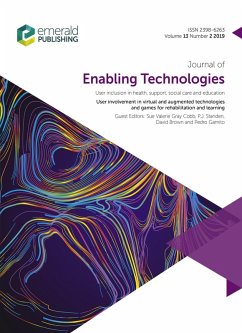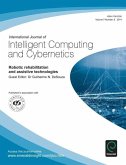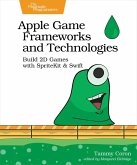In this special issue seven invited papers from ICDVRAT-ITAG 2018, including some receiving best paper awards, highlight the importance of user involvement in design and evaluation of novel technologies and applications for rehabilitation and/or learning. These papers demonstrate different methods for user representation, and involvement, in technology research and development. For example, Galvez-Trigo et al. present a cross-cultural comparison of teacher critique of barriers to implementation of robots in special education whereas Pieri and Cobb describe a participatory design approach in which deaf adults informed iterative development of a mobile app to aid them in communication with hearing people. Lahav et al. pick up the theme of research into the use of robots, this time with high functioning students with autism. Designing the behavior of smart artefacts, these students were able to program robotic behaviour independently and directly, without the involvement of a therapist. Proffitt et al. build on this and explore end user engagement at different stages of the design process and offer recommendations for effective integration of input from end-user clients and therapists in development of VR technologies for rehabilitation. Howes et al., explore the User Centred Design of an Active Computer Gaming system with elders to deliver tailored rehabilitation exercises to meet their needs, in the context of falls prevention. Interestingly this group had a strong preference for a screen display compared to using an Oculus Rift VR headset. Other research is this special issue considers how designer appreciation of the needs and requirements of people with 'hidden disabilities' can improve design and use of rehabilitation technology. Zubair et al. show the importance of effective personae description of children with autism, while Poyade et al. demonstrate successful user-informed development of a mobile app to provide virtual exposure therapy to help people with autism or PTSD cope with busy public environments.
Dieser Download kann aus rechtlichen Gründen nur mit Rechnungsadresse in A, B, BG, CY, CZ, D, DK, EW, E, FIN, F, GR, HR, H, IRL, I, LT, L, LR, M, NL, PL, P, R, S, SLO, SK ausgeliefert werden.
Hinweis: Dieser Artikel kann nur an eine deutsche Lieferadresse ausgeliefert werden.









